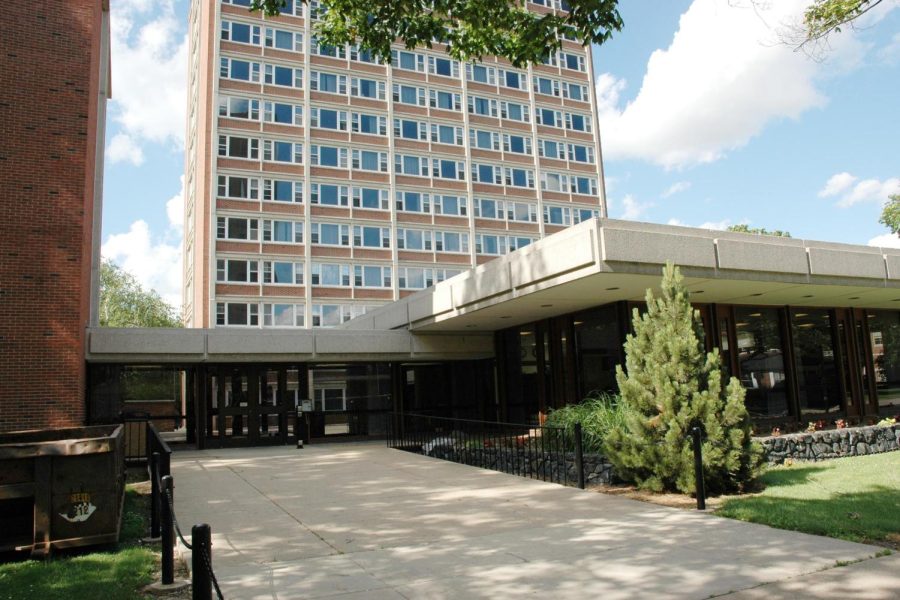COVID-19 cases spike in residence halls
Photo courtesy of University Housing
Sherman Hall and other University Housing facilities have been considered COVID-19 hotspots and have switched many events to be virtual.
February 16, 2022
University Housing is experiencing concentrated COVID-19 cases, or COVID-19 “hotspots.” They are ensuring there are enough isolation spaces as well as shifting toward virtual activities to account for this.
“It is a large operation behind the scenes to make (isolation spaces) run smoothly,” said Alma Sealine, director of University housing.
According to Mari Anne Curry, director of Housing Information and Marketing for University Housing, residential halls currently appear on and off of the list of areas marked as “COVID-19 hotspots” by SHIELD.
COVID-19 hotspots are areas where there have been a concentrated amount of COVID-19 cases. Students living in these areas are required to get tested more frequently in order to maintain building access.
Despite these requirements and the amount of students living in housing currently in isolation, students are not required to show building access prior to entering University Housing.
Get The Daily Illini in your inbox!
“If testing is already being done and monitored by campus, I don’t know if resource wise it is that helpful to add more people to check building access,” said Awais Vaid, epidemiologist at the Champaign-Urbana Public Health District.
Vaid instead recommended lessening large gatherings and ensuring proper guidelines are followed for those who test positive for COVID-19. Due to this, University Housing staff members are currently shifting toward virtual events.
According to Curry, housing is currently in conjunction with CUPHD to ensure enough isolation spaces are available for students who test positive for COVID-19 and are unable to return to their permanent residence.
“We try in the residential space, providing more space and more separation, hoping that we were not contributing to the spread of the variant,” Sealine said. “I think now that we’re kind of getting on the other side, we’re going to start opening those up and providing more opportunities for in-person activities.”
Sylvia Syp, residential adviser at Sherman Hall, is one of many advisers across campus hosting virtual events for students living in residence halls in order to decrease the spread. Although she feels that the decision to host virtual events is a responsible one, she noted the social effects it has had on the residents.
“You got less engagement from residents because a lot of friends were virtual, you weren’t seeing a lot of people come and that was a little draining,” Syp said.
Syp also pointed out that many events at the University are currently being held in person and mentioned that events hosted at University Housing are a key aspect of student engagement.
“Right now, I have 67 residents, and when I try to connect with them, a lot of people are avoiding me,” Syp said. “I felt it was hard to do a good job. I just wish people would reach back out to me and want to talk to me as much as I want to talk to them to hear how they’re doing.”







